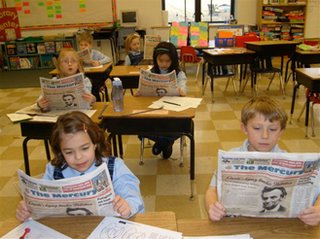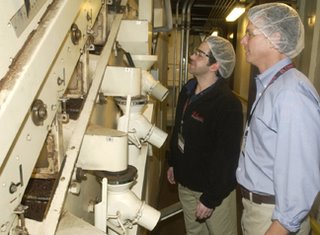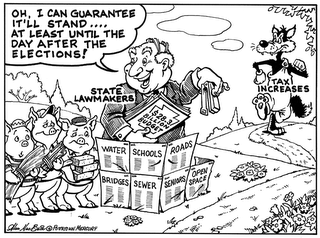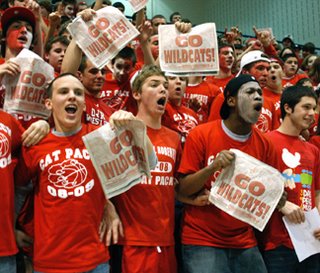"More people will read a newspaper today than watched Sunday's big game."
That statement was the centerpiece of full-page ads that appeared in many newspapers, including The Mercury, last Monday, the day after the Super Bowl.
"With 100 million daily readers, newspapers are a tremendous scoring opportunity," read the ad placed by the Newspaper Project,.
People depend on newspapers, reads the NP slogan.
That was on Monday.
On Friday, the saying on my desk Freedom of the Press calendar read:
"The difference between blogging and reporting is like the difference between songwriting and karaoke ... The blogosphere is a symphony -- no, a cacophony -- of tunes. But, you need someone to write the original notes. That is what reporters should do." The quote was from Chuck Raasch of USA Today.
In the middle of the week, a letter to the editor from The Morning Call in Allentown came to my attention. The letter writer was a South Whitehall Township resident who wrote that when time came to renew his home delivery to the Call, he considered saving some money and getting the news online.
"But, then I read an article that made me reconsider. It was how the newspaper used freedom of information laws for two years to pursue the release of the autopsy of a slain Easton police officer," wrote Donald DeCray Sr. "Without an independent newspaper, who would have had the money to pursue this cause? Who would have been the watchdog for the public's right to know?
"Bloggers are no replacement for our local newspaper and reporters. Someone must pay the reporter who goes to council meetings, board meetings and investigates our public officials. We need newspapers to keep all levels of government honest. ... And that is why I decided to renew my subscription," the letter stated.
On Thursday, Mercury reporter Evan Brandt was at a Pottstown School Board meeting in which The Mercury was mentioned more than once -- our coverage, our opinions -- noting among other things that the sheer number of stories written on the Pottstown elementary schools question proves the saga has gone on for too long.
Then, on Sunday, a member of my church stopped me on the sidewalk to comment on a recent editorial or two that I have written.
There are days when this feels like a thankless job. But last week was more typical, demonstrating day after day that our work matters.
Every Monday, I know the words and pictures produced by the staff of this newspaper start the week for more than 20,000 households.
I am fairly certain that more people in this town read The Mercury today than watched the Grammy awards Sunday night.
I know there is much written and said about the demise of newspapers. But, I know with as much certainty that we are as relevant to our community as ever.
Newspapers are vital to your town and your community.
Depend on it.


 d the bad news, are positive business stories about healthy sectors of the economy. The Pottstown area is still a place of progress, as The Mercury’s annual edition of that name proves.
d the bad news, are positive business stories about healthy sectors of the economy. The Pottstown area is still a place of progress, as The Mercury’s annual edition of that name proves.
 eat of editorial opinions has not made much of a dent. We have printed so many cartoons on state government drawn by free-lance artist Alan MacBain that the lawmaker featured has his own identity. We call him Rep. Harry Combover.
eat of editorial opinions has not made much of a dent. We have printed so many cartoons on state government drawn by free-lance artist Alan MacBain that the lawmaker featured has his own identity. We call him Rep. Harry Combover.